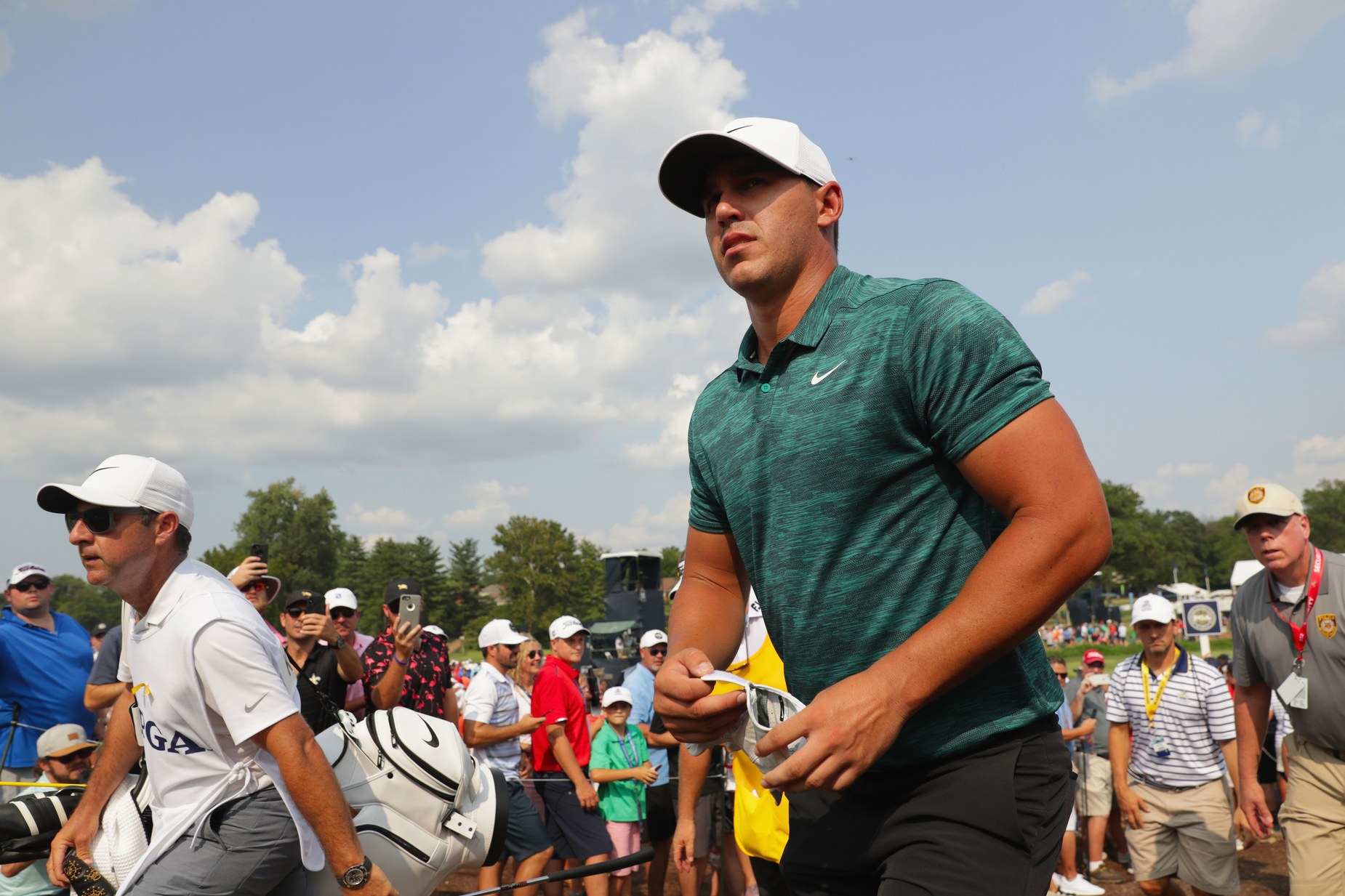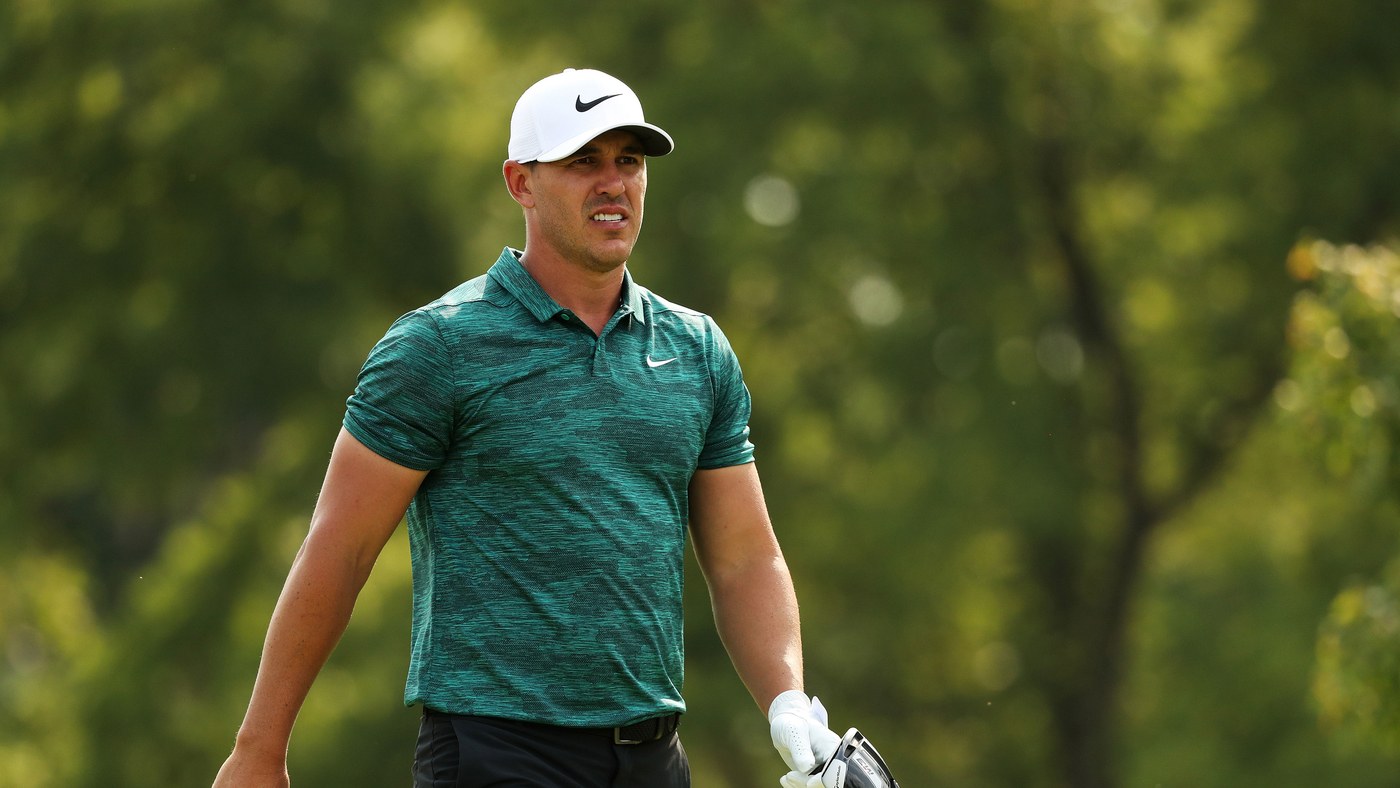By John Feinstein
Brandel Chamblee is absolutely right when he says that Brooks Koepka isn’t in the same class as a golfer with Tiger Woods, Rory McIlroy and Dustin Johnson.
That’s because, right now, he’s better than all three of them.
In my opinion—which is biased because he’s a friend and a former colleague—Chamblee is the best golf analyst currently working on TV. For nine years, I had the chance to watch him prepare to go on-air. He and Frank Nobilo together were notably diligent in their research prior to every single telecast.
Part of the reason Chamblee is so good is his willingness to climb out on limbs whether on the subject of Tiger Woods’ golf swing; the lack of Ryder Cup leadership provided in the last 20 years by Woods and Phil Mickelson; or Rory McIlroy saying he’d watch the Olympic sports “that mattered” in 2016—golf not being one of them.
You climb out on limbs, you are occasionally going to take a fall. I happen to think Chamblee’s analysis of Koepka is one of those.
Why?
Because it is based largely on statistics—like driving, chipping and putting. One of Chamblee’s strengths is the way he uses stats to back up the points he’s making. But in this case he’s missing the stat that matters most: winning—more specifically winning when it matters most.
McIlroy hasn’t won a major title since 2014. Johnson has won a grand total of one major, his 2016 U.S. Open. Woods is different, having won 15 majors, his latest just four weeks ago at the Masters. That, however, ended an almost 11-year skein without a major.
Koepka’s won three of the last seven majors he’s played in, dating to the 2017 U.S. Open. He’s also finished T-2 at last month’s Masters and T-6 at the 2017 Open Championship. His only finish outside the top-10 during that stretch were a T-13 at the 2017 PGA and a T-39 at the Open at Carnoustie last July.
That’s a remarkable stretch of golf, especially when one considers that he missed the 2018 Masters because wrist surgery that sidelined him from January until late April.
Koepka has just turned 29, and if he stays healthy, there is no telling how many majors he might win before he’s done. And, let’s face it, majors are how greatness is ultimately measured. Johnson has won 20 times on tour, but I suspect if you offered him Koepka’s resume—five PGA Tour titles in all, but three of them majors—he’d make the swap in a heartbeat.
Koepka is currently ranked No. 3 in the Official World Golf Rankings, which is more a reflection of the flaws in the OWGR than anything else. How can someone who is the current title holder in two of the four Grand Slams be ranked behind two players—Johnson and Justin Rose—who haven’t won a Slam during the ranking period?
Koepka’s also No. 4 in the FedEx Cup standings after his fourth-place finish on Sunday in the Byron Nelson Classic, which makes the OWGR even more difficult to understand since this season’s FedEx Cup standings do not include his two most recent major titles, and he’s currently ahead of both Johnson and Rose.
Go figure.

Streeter Lecka/PGA of America
But none of those numbers really matter any more than the fact that Koepka only finished ninth on last year’s FedEx Cup points list. How is it possible for someone to win two major titles and not win what is billed as “a season-long race” to that title. Again, that’s a reflection of a flawed system more than it is on Koepka’s golf. He was the runaway winner for PGA Tour Player of the Year, which is a far more important reflection of a player’s year than any points system can produce.
It isn’t as if Chamblee is the only person who has failed to give Koepka the credit he’s due—he’s just the most visible. Many in the golf media claim Koepka’s boring and, as a result, many fans feel the same way.
Here’s a fact: Koepka’s anything but boring. He’s always been a little bit different, and in golf, different is almost always frowned on. When he turned pro out of Florida State in 2012, he went to Europe and played the Challenge Tour before graduating to the European Tour a year later after three victories.
He played on the Euro Tour in 2013 and split time between Europe and the U.S. in 2014—winning the Turkish Airlines Open, one of the tour’s Race to Dubai events, in the fall.
He returned to the U.S. full time and won almost out of the chute in Phoenix in 2015. He would have made the 2015 Presidents Cup team on points if he had been a tour member in 2014 but, because he wasn’t, none of the points he would have accumulated counted.
The first time I sat down with Koepka was in August 2015, shortly before Jay Haas announced his Presidents Cup captain’s picks.
“I’d really like to be on the team,” Koepka said back then. “I think I can help us win, and I think I deserve to play based on what I’ve done on the golf course the last two years.” He paused and smiled. “Plus, I know it would help me get some feel for what the Ryder Cup is like. I’m planning on being on the Ryder Cup team next year.”
That kind of candor isn’t just unusual on the PGA Tour, it’s generally frowned upon. For one thing, the tour cringes whenever a player admits how much more important the Ryder Cup is than the Presidents Cup. For another, you aren’t supposed to come off sounding too confident about your game. “I’m just trying to give 110 percent,” is usually what people want to hear.
Haas passed on Koepka, but Koepka fulfilled his promise by making the Ryder Cup team on points a year later and went 3-1 in the U.S. victory over Europe at Hazeltine National. When Koepka won the U.S. Open at Erin Hills almost eight months later, he mentioned that playing in the crucible of the Ryder Cup had helped him down the stretch.
Koepka’s reaction to Chamblee’s recent comments—a tweet with a photo-shopped picture of Chamblee with a clown’s nose—might have been a bit over the top (the big top?) but it certainly wasn’t boring. Golf needs more players who are honest and even occasionally prickly. Koepka can clearly be both, and should he happen to win at Bethpage Black, even the oft-stubborn Chamblee, may be forced to revise his comments.
There was a rush to criticize among many in the golf media a few years back when Patrick Reed declared himself one of the five best players in the world after winning three tournaments in seven months, even though the ever-flawed OWGR had him at No. 21. Everyone had to back off a little after Reed was the best player on the U.S. Ryder Cup teams in 2014 and 2016, and won the Masters in 2018.
After Koepka won last year’s PGA for his third major victory, he began to be hit with the “boring” charge. Based on my experience, I totally reject the claim.
Brooks Koepka is the best player in the world right now. And, if you give him a fair chance, he’s got plenty to say. Just listen.









